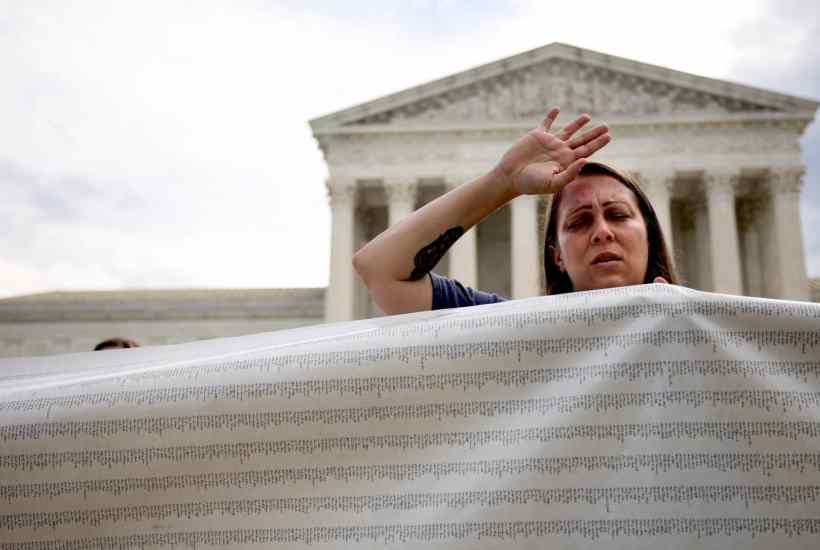There are two possible responses to the sound and fury currently emanating from Washington and from the American media after a leak indicated that the Supreme Court will overturn Roe v. Wade in the next couple of months. For House Speaker Nancy Pelosi, Justice Samuel Alito’s 96-page draft judgment points to ‘the greatest restriction of rights in the past 50 years’.
Already a subscriber? Log in
Subscribe for just $2 a week
Try a month of The Spectator Australia absolutely free and without commitment. Not only that but – if you choose to continue – you’ll pay just $2 a week for your first year.
- Unlimited access to spectator.com.au and app
- The weekly edition on the Spectator Australia app
- Spectator podcasts and newsletters
- Full access to spectator.co.uk
Or




















Comments
Don't miss out
Join the conversation with other Spectator Australia readers. Subscribe to leave a comment.
SUBSCRIBEAlready a subscriber? Log in